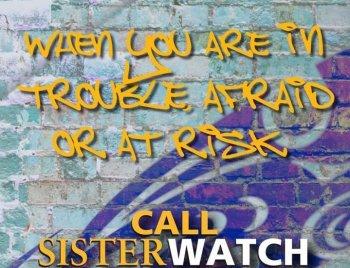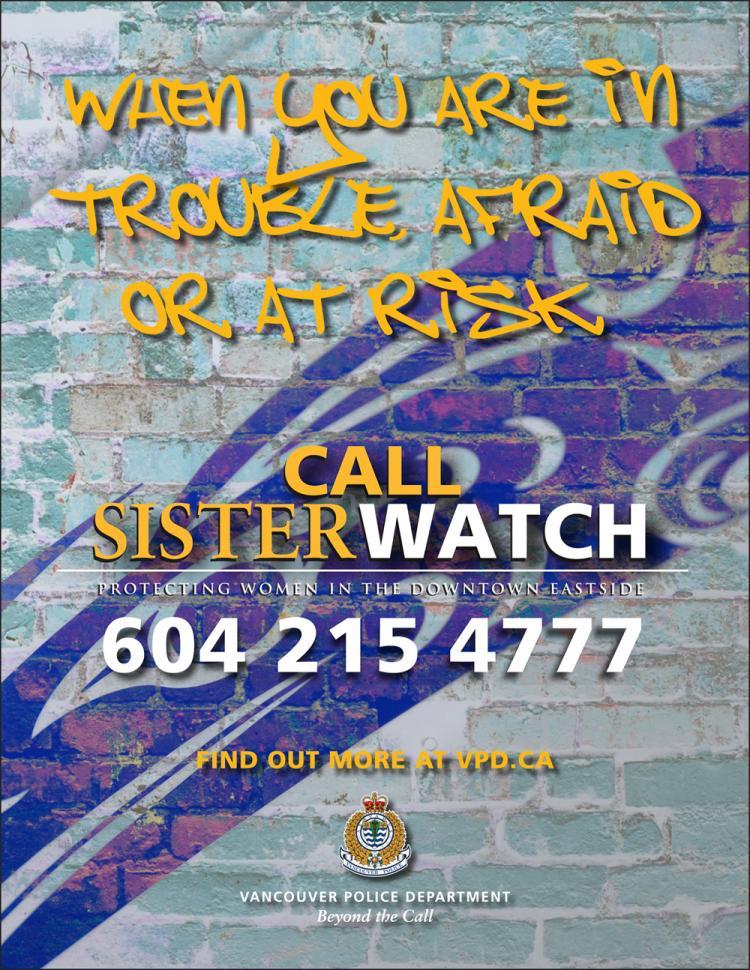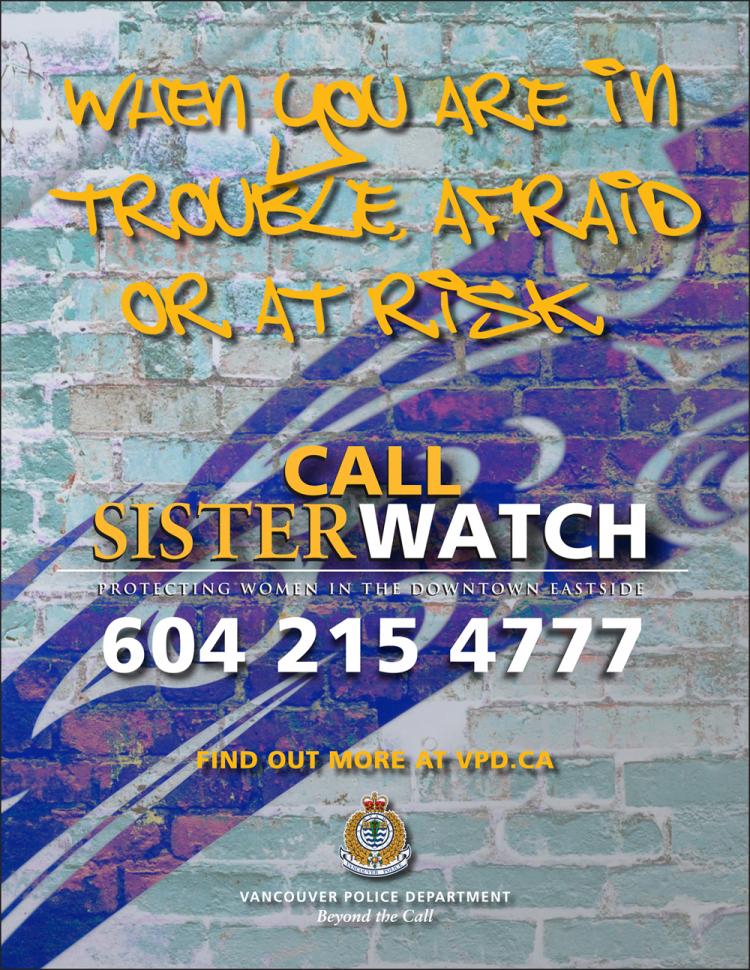Almost six months after its launch, the VPD’s Sister Watch program is beginning to see results by building relationships and protecting those most vulnerable in the troubled community.
“We’ve changed the way we are communicating and doing business to address issues in the Downtown Eastside,” says Sgt. Joanne Boyle, acting inspector for the VPD’s major crimes section.
Sister Watch was developed in response to growing frustration with the lack of police investigation into cases involving violence against aboriginal women in the area.
The most recent case that sparked outrage was the death of Ashley Machiskinic, who fell from a fifth floor window at the Regent Hotel in suspicious circumstances. Her death was dismissed as a suicide by the VPD.
Boyle says the success of the Sister Watch program lies in actively listening to the community, something long overdue.
“What we really needed to do in this case was to slow down and listen to the community and not to tell them what we thought needed to be fixed, but to actually hear it from them what their priorities were. ... Then to start working together, and that’s the phase that we’re in now.”


